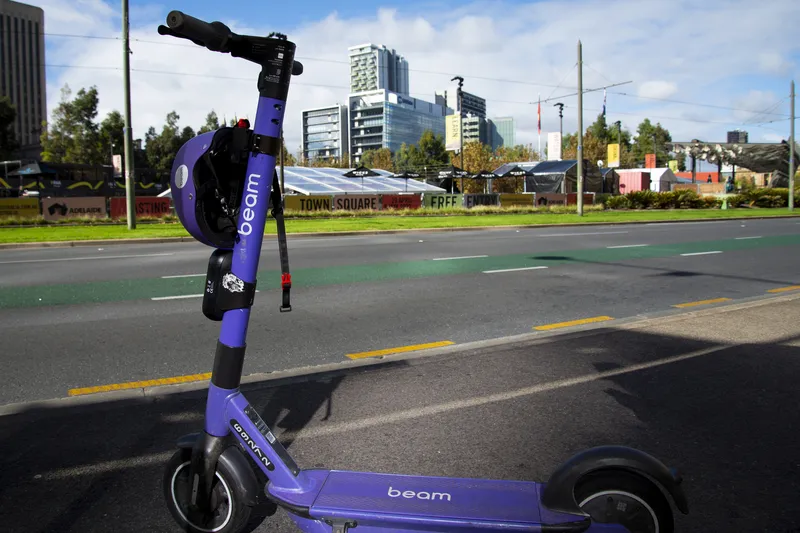
Beam has started trialling its e-scooters in Kogarah, the first such pilot in Australia's greater Sydney area.
Kogarah, with a population of around 16,500, is located 14km south-west of the Sydney central business district and is part of the Georges River recreational area in New South Wales.
Residents and visitors 16 and over can hire one of 60 purple Beam Saturn 5 e-scooters as well as helmets. Beam says that its Saturn 5 has wireless phone charging and auditory alerts, as well as improved geofencing capabilities to ensure safe operation of micromobility alongside other modes of transport.
Geofencing technology controls where e-scooters are ridden and how fast they can travel, as well as ensuring they are parked appropriately.
The shared e-scooters will be limited to 20km/h on roads within the trial area which have a speed limit of 50km/h or less. E-scooters are not permitted on footpaths.
Currently, only e-scooters provided through a shared scheme are permitted for use in approved trial areas and privately owned e-scooters cannot be used in public areas in the state.
For managing the trial, the local council has established a shared e-scooter Local Working Group with authorities, including Transport for New South Wales, NSW Health, plus local bus services, police and council representatives.
“It was encouraging to see the level of interest from residents and visitors at the two free Beam Safe Academy e-scooter sessions at Kogarah Town Square recently,” said said Sam Elmir Georges, mayor of the River Council. “We are eager to see results of usage and riders’ feedback captured from Beam, also feedback from residents and visitors through the council’s consultation [process] which is now open.”
The trial is also the sixth underway as part of the state’s shared e-scooter scheme. According to Transport for NSW, people can be fined for riding an e-scooter outside the trial area and for not wearing a helmet.








